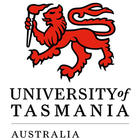Master of Marine and Antarctic Science
Master of Marine and Antarctic Science
As a gateway to Antarctica and with a natural marine laboratory on your doorstep, the University of Tasmania provides an ideal base to study for a career in marine biology and the fisheries and aquaculture industries. This is the only masters degree in the world which uniquely combines marine science…
Categories
COURSE DESCRIPTION
As a gateway to Antarctica and with a natural marine laboratory on your doorstep, the University of Tasmania provides an ideal base to study for a career in marine biology and the fisheries and aquaculture industries.
This is the only masters degree in the world which uniquely combines marine science with a focus on the southern ocean and Antarctica. You’ll have access to industry-leading facilities at the Institute for Marine & Antarctic Studies (IMAS) and internationally recognised experts to help you kick-start your career.
The Master of Marine and Antarctic Science provides:
Practical skills alongside theoretical studies to broaden your experience and give you the edge when it comes to employment
More than lectures, labs and tutorials with study trip units that take learning to the Southern Ocean and into Australia’s largest fisheries, aquaculture and seafood industries
Contacts, work experience and research links in Australia’s largest fisheries and aquaculture industries (based in Tasmania)
Access to our international partner organisations and internationally recognised marine science organisations based in Tasmania
One year project, individual research-based thesis or group industry-relevant project
You’ll have the choice to study one of the following three streams: Marine Biology, Fisheries Management or Sustainable Aquaculture.
Course objectives
The course provides specialist streams for students to pursue in-depth learning in a particular area of marine science, paired with broader research methodology and a research project.
This course is designed to prepare students for a meaningful scientific career in industry or as a researcher. This is achieved through a focus on both the quantitative elements of marine and Antarctic science as well as the application and translation of science into industry practice and management.
Students will gain skills in scientific method as practiced by professional scientists. This includes exposure to the process of scholarly critique, collaboration and practical field, laboratory or industry operations. Upon graduation you will be able to critically analyse and solve problems, communicate outcomes to a range of audiences and explain the role of marine and Antarctic science in society.
The skills gained will assist graduates in contributing to world issues such as seafood production and security, climate change and marine stewardship.
Many graduates continue into a higher research degree and conduct in-depth research in IMAS’ key research areas of oceanography and cryosphere, fisheries and aquaculture, ecology and biodiversity, climate change, oceans and Antarctic governance and ocean-earth systems.
Career outcomes
The University’s Institute of Marine and Antarctic Science (IMAS) provides our students with access to some of the world’s leading research facilities giving you the best career foundation.
With an annual value to Australia of approximately $40 billion and growing, graduates from the University of Tasmania are highly sought-after in a range of fields. The commercial fishing and aquaculture industry directly employs 7000 people in Australia and Tasmania is the country’s largest commercial operator in this area.
The degree allows graduates to pursue exciting careers in marine and climate research, fisheries management, aquaculture, non-governmental organisations, environmental governance and all levels of government from local to global.
The skills and knowledge you gain places you in a prime position to have a real impact on practices, processes and policies on a local, national or worldwide scale.
REQUIREMENTS
Admission to most postgraduate coursework courses at the University of Tasmania require qualifications equivalent to an Australian bachelor degree.
To be admitted to study the Master of Marine and Antarctic Science you must have a Bachelor of Marine and Antarctic Science or Graduate Diploma in Marine and Antarctic Science from the University of Tasmania, or an equivalent qualification from a recognised tertiary education institution. An example of an equivalent qualification is a Bachelor of Science with a major in life sciences (such as biology, environmental science, zoology, plant science, marine biology, ecology etc).
IELTS (Academic) – 6.0 (no individual band less than 6.0)
TOEFL (iBT) 72 (no skill below: Reading 16; Listening 16; Speaking 18; Writing 22)
PTE Academic 50 with no score lower than 50
UTAS Access-English Level 7 – 60% (no individual score less than 60%)
Cambridge CAE (Certificate of Advanced English) – B Grade
Cambridge CPE (Certificate of Proficiency in English) – C Grade
Cambridge BEC (Business English Certificate) Higher – C Grade
EDUCATIONAL INSTITUTION
The University of Tasmania was officially founded on 1st January 1890 and is located at Sandy Bay, Tasmania. In addition to the main campus at Sandy Bay, it also operates out of the Newnham Campus and the Cradle Coast Campus. The most popular courses offered are the environmental studies that include wilderness management, marine sciences and indigenous studies in Tasmanian literature. Other unconventional courses include agriculture development, studies on the community and population and ocean study programs. The university also comprises of a Music Conservatorium, Art school and a School of Clinical studies.




